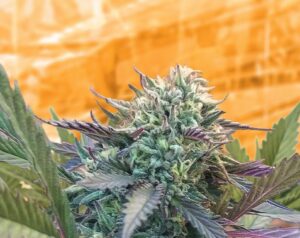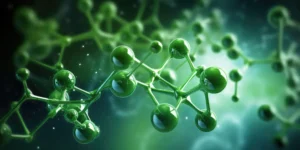
The Key to Thriving Greenhouses: 8 Simple Steps to Commercial Greenhouse Roof Cleaning
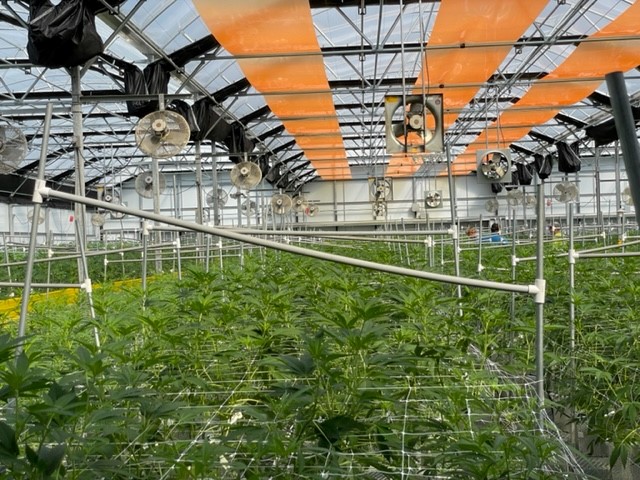
Commercial greenhouses are key in modern agriculture, offering year-round cultivation of fresh produce. Ensuring crops’ optimal growth and productivity hinges on comprehensive greenhouse maintenance, with a focus on the critical role of regular roof cleaning, including greenhouse roof maintenance, and using roof cleaning solutions. This guide covers the best practices for cleaning greenhouse roofs safely, efficiently, and with an eye on environmental sustainability, highlighting its significance in promoting plant health and greenhouse efficiency.
1. Conduct a Thorough Inspection
Before undertaking the cleaning process, it is important to conduct a meticulous inspection of your greenhouse roof. The roof is not only the protective shield against external elements but also the primary source of sunlight for plants. Some things to look out for are signs of damage such as:
- Leaks
- Cracks
- Wear and tear
These issues can weaken the structure of your greenhouse and create unfavorable conditions for plant growth. Fixing any damages you find right away ensures that your greenhouse remains stable and provides a supportive environment in which your plants thrive. After all, without proper maintenance on your greenhouse roof, your plants will not grow to their full potential.
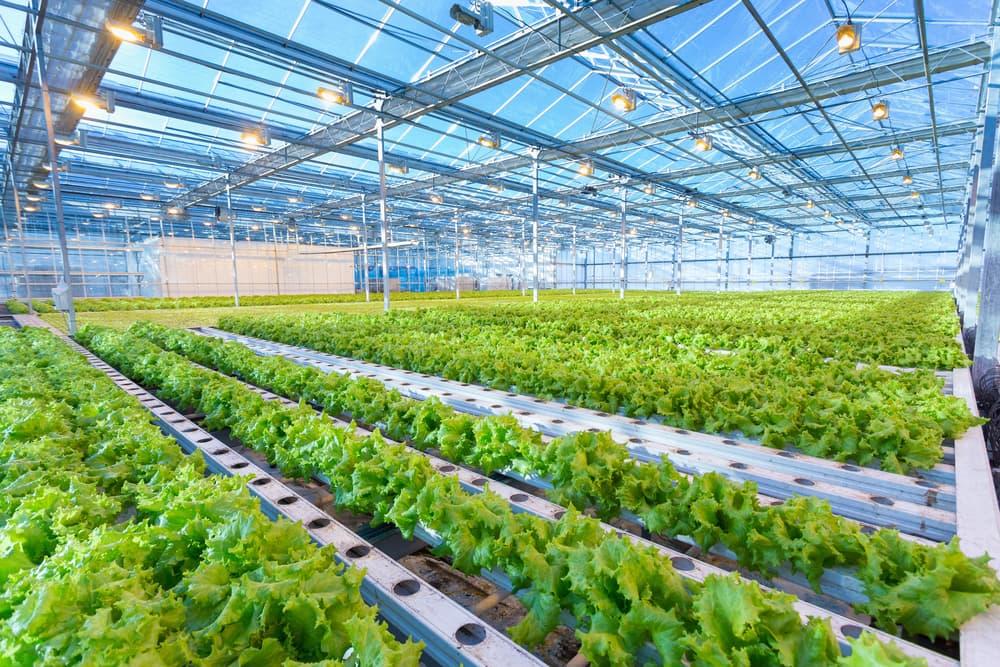
2. Use the Right Tools and Products
Efficiently cleaning a commercial greenhouse roof requires the right set of tools and equipment. Power washers and foamers are helpful in removing tough dirt and grime that might have built up over time. Having access to sturdy and reliable ladders is crucial for safe and thorough cleaning of hard-to-reach areas on all parts of your roof. Equally as important is the selection of the right cleaning solutions that are safe for both the greenhouse plants and the environment. Opt for eco-friendly and biodegradable cleaning agents to minimize the ecological harm to the environment and maintain a sustainable approach to greenhouse maintenance.
Tips for Choosing Safe and Effective Cleaning Solutions
Selecting the right cleaning solutions is very important when it comes to ensuring the health of your plants, the safety of your employees, and the preservation of the environment. Consider the following tips when choosing greenhouse roof cleaning agents:
- Look for products labeled as “safe for plants” or “biodegradable” to minimize any adverse effects on the greenhouse ecosystem.
- Test a small area of the roof before applying the cleaning solution extensively to ensure compatibility and effectiveness.
- Consult with experienced greenhouse professionals or industry experts for recommendations on suitable cleaning products.
3. Choose the Right Time for Greenhouse Roof Cleaning
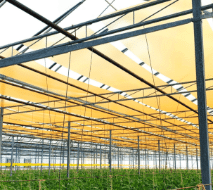
The timing of your greenhouse roof cleaning plays a critical role in the success of your greenhouse. It’s best to pick a dry and calm day, preferably without wind, to prevent water and cleaning solutions from splattering onto your plants or reaching unintended areas. Avoid cleaning on windy, rainy, or extremely hot days, as these conditions can compromise both safety and the overall effectiveness of the cleaning process. By choosing the right time, greenhouse owners can ensure maximum efficiency and safety during the roof cleaning process.
4. Protect Yourself and Prioritize your Safety
When working on or in your greenhouse, it’s important to prioritize your personal safety. In addition to wearing appropriate footwear and long-sleeved attire, it’s essential to protect yourself with goggles, gloves, and respiratory gear. Personal protective equipment (PPE) is your first line of defense against potential hazards such as:
- Dust
- Debris
- Chemical exposure
By investing in and diligently using PPE, you can reduce the risk of accidents and health problems while promoting a safer working environment.
5. Pre-spray and Scrub Your Greenhouse Roof
Before you start using power washers or foamers, pre-spraying the greenhouse roof is a necessary step in the cleaning process. Pre-spraying helps to loosen and soften stubborn dirt, debris, and growths, making them easier to remove during the main cleaning process. Once complete, use a power washer or foamer at low pressure, methodically moving across every section of the roof. For areas with severe dirt buildup, repeat the process until the roof is thoroughly cleaned. This step ensures that the roof is free from any encrusted materials that could hinder light penetration and affect the health of the plants.
6. Rinse Thoroughly
After you complete the cleaning process, be sure to rinse thoroughly to remove any remaining cleaning chemicals or residue from your greenhouse roof’s surface. Chemical buildup can be harmful to your plants and may also damage your greenhouse roof over time. To ensure a complete and meticulous rinse, use clean water and appropriate pressure, leaving your roof spotless and safe for your plants’ growth.
7. Proper Disposal of Waste
Responsibly disposing of the waste generated during the cleaning process is an integral part of environmentally responsible greenhouse maintenance. This includes disposing of dirty water and any leftover cleaning products. Avoid contaminating nearby water sources or soil by following local regulations and guidelines for proper waste disposal. Alternatively, consider recycling options for your cleaning solutions if available. Proper disposal practices contribute to a cleaner and healthier environment for both your greenhouse and the world around it.
8. Regular Cleaning Schedule
Consistency is key to maintaining your commercial greenhouse in top shape. Establishing a regular cleaning schedule is a proactive approach to greenhouse roof maintenance. Creating an organized cleaning calendar, aligned with the best weather forecast, ensures that your greenhouse roof remains clean and free from significant buildup or damage. Regularcleaning not only enhances the growth environment for plants but also extends the life of your greenhouse structure, ensuring long-term productivity, profitability, and success.
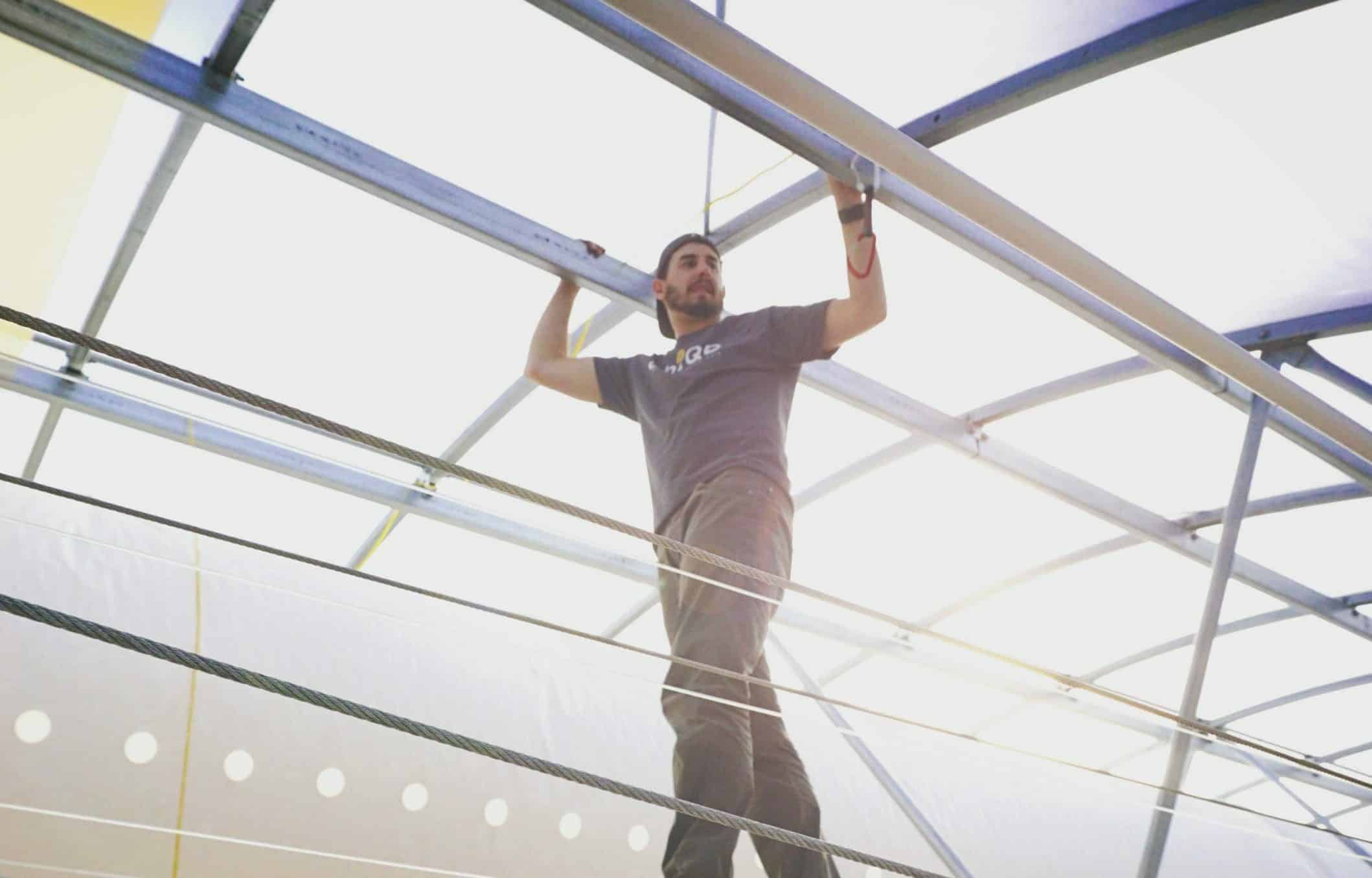
Greenhouse Roof Maintenance and Its Impact on Plant Growth
The roof of a commercial greenhouse is not simply a protective covering; it plays a pivotal role in plant growth and overall productivity and UbiGro’s greenhouse films enhance the quality of the sunlight your plants receive. In order to optimize the amount of sunlight your plants get, you need to make sure roof maintenance is taken care of. A clean and well-maintained roof allows sunlight to penetrate the greenhouse efficiently, providing the essential energy for photosynthesis. Unobstructed light or enhanced light is crucial for the healthy development of plants, leading to higher yields and better-quality produce. Additionally, a clean roof prevents the growth of mold, algae, and pests, which can otherwise harm the plants and hinder their growth.
The Environmental Benefits of Proper Greenhouse Roof Cleaning
Beyond its positive impact on plant growth, proper roof cleaning also contributes to environmental sustainability. By using eco-friendly cleaning agents and adopting responsible waste disposal practices, greenhouse owners reduce their ecological footprint. This minimizes chemical runoff and waste pollution which helps preserve local ecosystems and water sources, fostering a healthier environment for all. With responsible greenhouse roof cleaning practices, the agricultural industry can move closer to achieving a more sustainable and eco-conscious future.
Summary
Maintaining a clean and well-maintained commercial greenhouse roof, including regular cleaning greenhouse roof and greenhouse roof maintenance activities, is crucial for optimal greenhouse management. Implementing best practices for roof cleaning solutions can significantly benefit plant health and agricultural productivity. UbiGro emphasizes the importance of these practices in supporting a sustainable, efficient, and prosperous future in farming. Our innovative approaches aim to boost plant growth and greenhouse efficiency, underscoring our commitment to environmental stewardship and business success in the greenhouse sector. Happy farming!

Dr. Damon Hebert
Dr. Damon Hebert serves as Director of Agriculture Research for UbiQD, Inc., with a background in solar materials and controlled environment cannabis cultivation. He is an advocate for the use of advanced materials to further the industry’s push towards sustainable farming practices. He can be reached at [email protected].
Connect With Us
Company
Resources
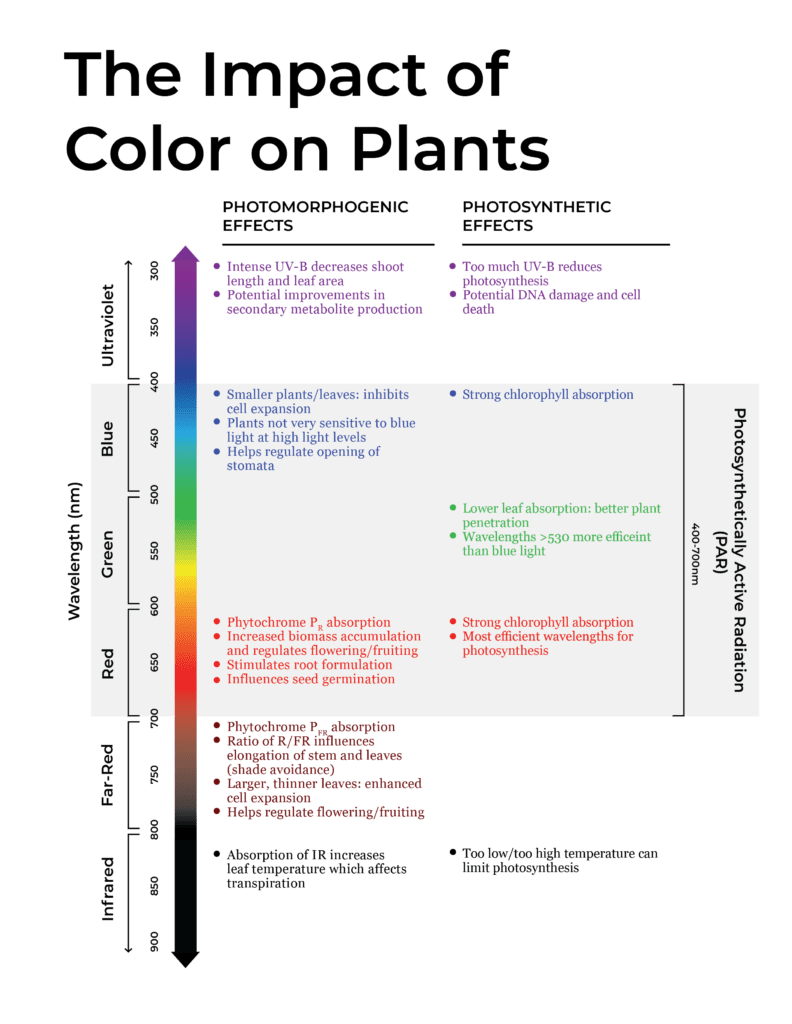

Hunter McDaniel, PhD
Founder & CEO
Hunter earned a Ph.D. in Materials Science and Engineering at the University of Illinois at Urbana-Champaign, before joining Los Alamos National Laboratory in the Chemistry Division. Ultimately the value proposition of UbiGro is about boosting crop yields and quality without the cost or energy impact of lighting. Hunter has more than fifty publications and patents, and more than 2000 total citations, h-index: 20. Hunter fundamentally believes that novel materials underpin every significant technology advancement, and he is focused on leveraging new materials to have a lasting and sustainable impact.

Damon Hebert, PhD
Director of Agriculture
Damon brings a wide range of experience in agriculture, materials science, spectroscopy, and small business. During his time in Prof. Angus Rockett’s research group at The University of Illinois at Urbana-Champaign (UIUC), Hebert authored a doctoral thesis and multiple papers on the materials science of CIGS semiconductor materials, which is closely related to the materials developed at UbiQD. He also served as a consultant to Nanosolar, a CIGS nanocrystal solar cell manufacturing company. Hebert has industry experience having co-founded Dr. Jolly’s, a leading cultivation and distribution operation in Bend, OR.

Tania Lafaille
Sales Representative
Tania is a UbiGro Sales Representative, with over 7 years of experience in product sales (specifically berries and avocados) covering all of North America and parts of South America. While in agriculture, Tania has cultivated strong relationships with growers and distributors, granting her a unique insight into both perspectives. That understanding, paired with her fierce dedication to results, drives her fun and fiery commitment to her craft. Tania is based in Gilroy, CA.

Tyler Veyna
Sales Representative
Tyler brings 15 years of experience in Greenhouse production and facility management of a wide range of crops in multiple states to the UbiGro team. Based in Salinas, California. “Being a fourth-generation farmer, I look to improve and empower the grower, and with UbiGro, we can do just that.”

Jim Gideon
Sales Manager
Jim Gideon is an UbiGro Sales Manager, with over 25 years of greenhouse industry sales experience covering all of North America. Previously Jim has worked for Green Tek, Plazit-Polygal, Texel, Cherry Creek, and Nexus. He is based in Montgomery, AL, and Jim believes that “light is everything to the grower.”

Eric Moody
Director of Sales
Eric Moody is UbiQD’s Director of UbiGro Sales. Eric has more than 6 years of experience in horticulture lighting industry, building relationships with greenhouse growers of all sizes and crops on optimal lighting for their growing operation, and most recently managed a North American sales team for PL Light Systems. Overall, Eric has been in sales leadership positions for more than 13 years. Eric brings with him a great understanding of the market and available technologies for growers, greenhouse facilities, and sales leadership. Reach Eric by phone at 541-490-6421 or by email at [email protected].

Mike Burrows, PhD
Dr. Michael Burrows is UbiQd’s Vice President of Business Development. His educational background includes a Materials Science doctorate from the University of Delaware and an MBA from Duke University Fuqua School of Business. His career has specialized in the commercialization of novel electronic materials in venture-run programs for different industries including solar, biosensors, and the automotive industry. In both start-up and corporate environments, he has extensive experience in global market development, foraging supply chain partnerships, productization, and brand building. He is currently leading UbiQD’s partnership efforts in luminescent greenhouse technology, smart windows, and security ventures.

Matt Bergern, PhD
Cheif Product Officer
As Chief Product Officer at UbiQD, Dr. Matt Bergren leads the company’s product development efforts, sales, and product manufacturing, including the company’s first commercial agriculture product, UbiGro. He plays a critical role in continuing the company’s path of technology development and vision of powering product innovations in agriculture, clean energy, and security.
He serves as the principal investigator for UbiQD’s contract with NASA, focused on tailoring the solar spectrum for enhanced crop production for space missions. Dr. Bergren’s leadership experience includes serving on the board of directors for the New Mexico Energy Manufacturing Institute, focused on job creation in New Mexico’s energy, and related manufacturing community.


